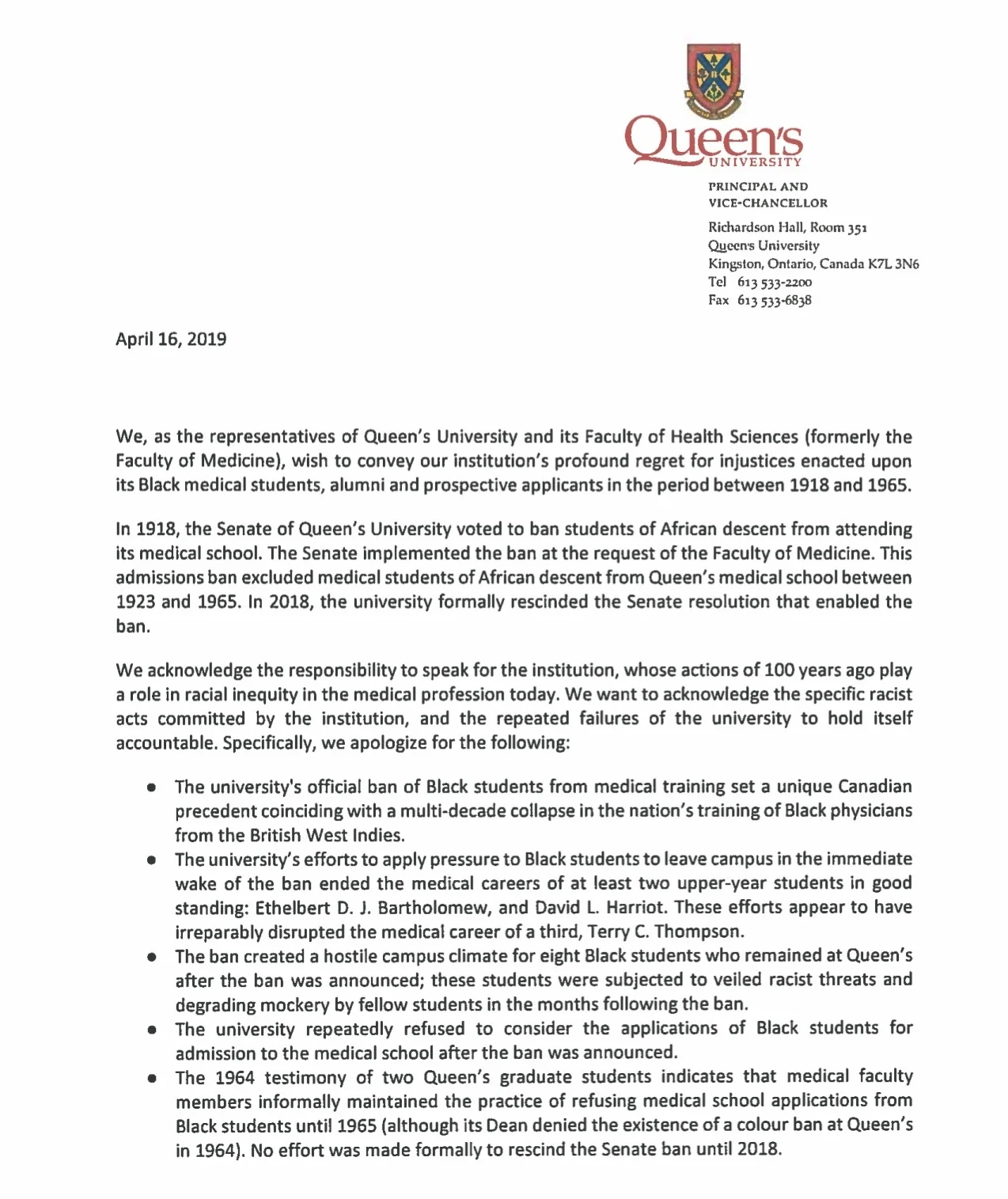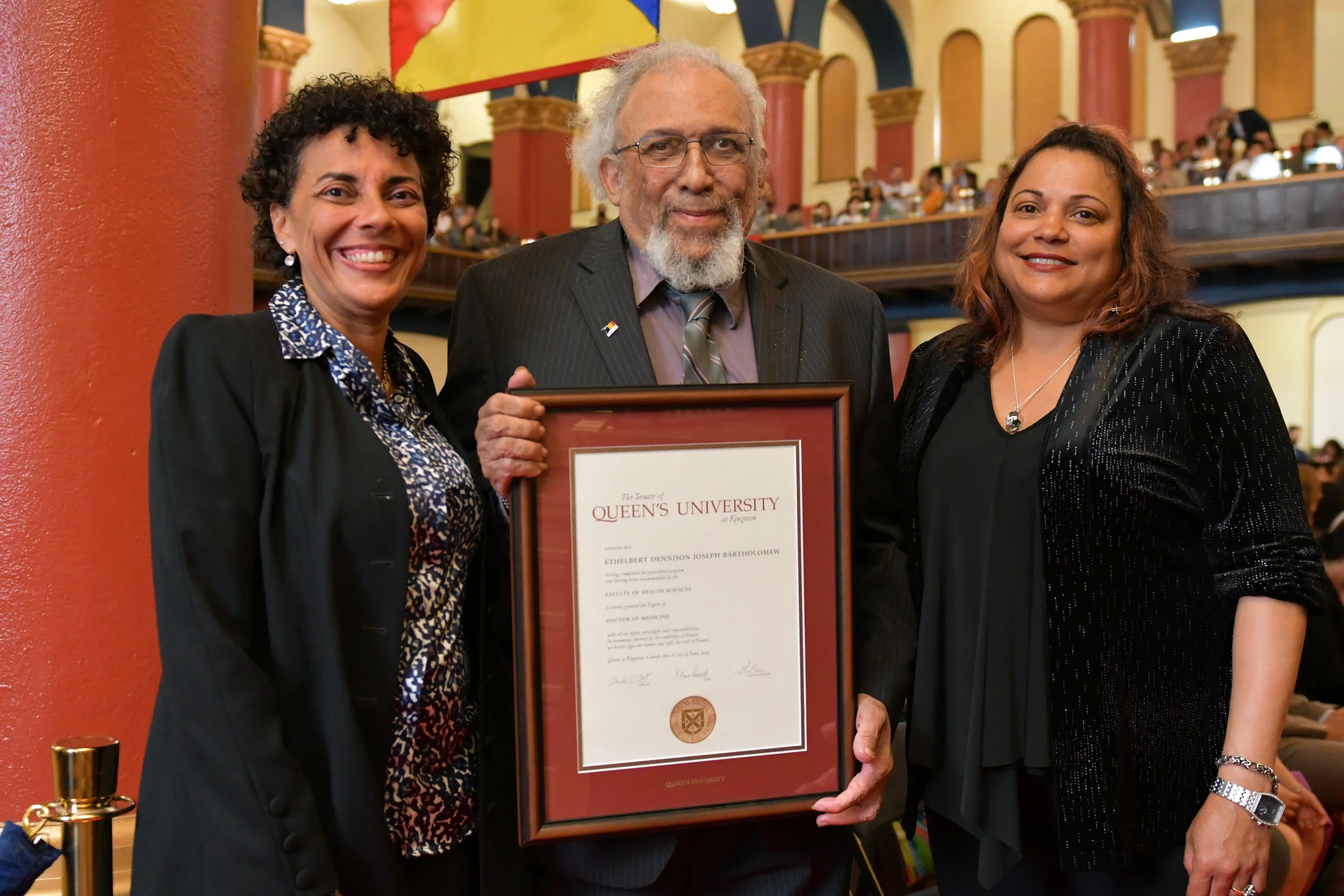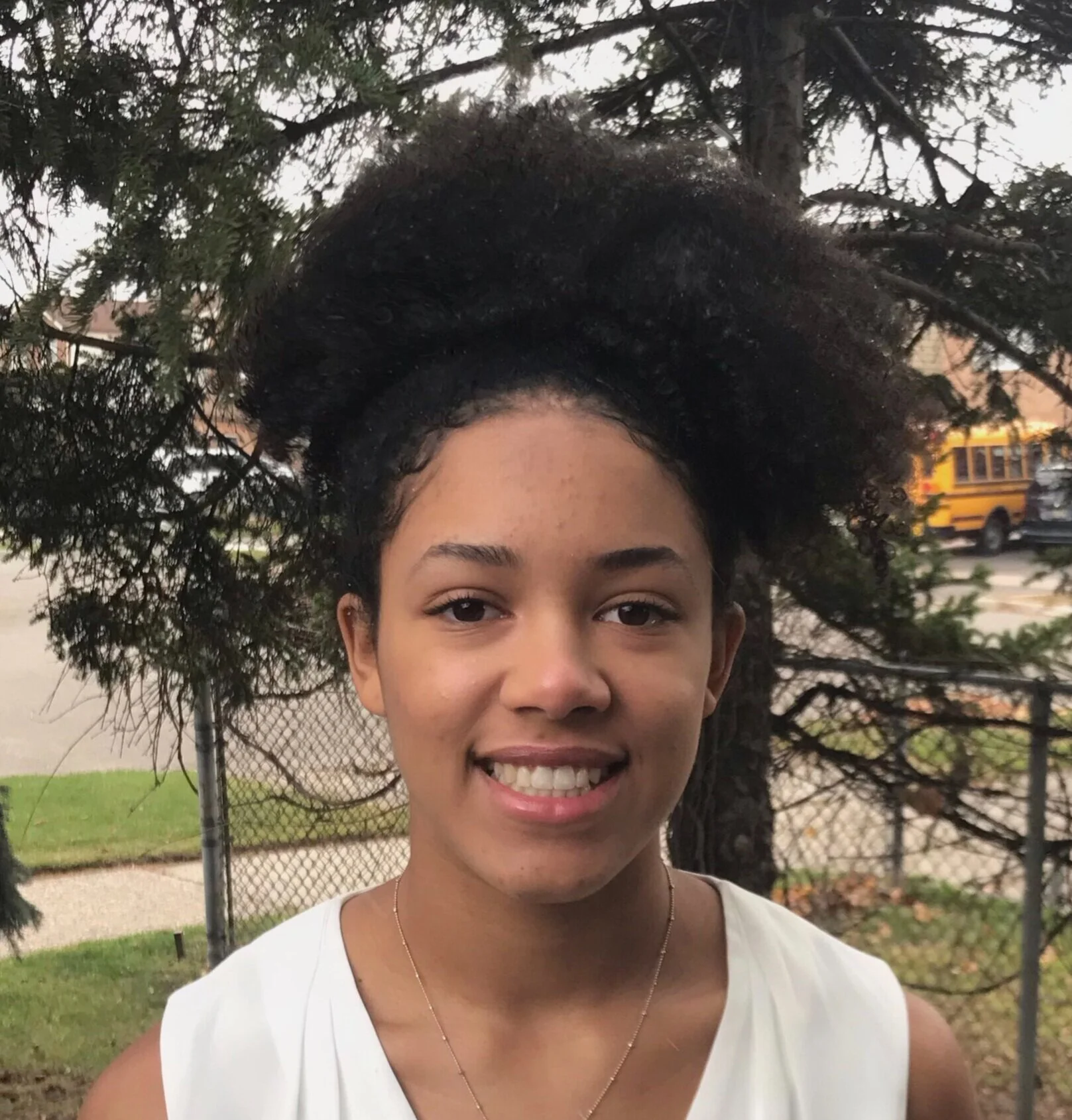Posthumous degree for Trinidadian medical student unjustly expelled from Queen's
June 26, 2019
What if?
On April 16, Queen’s University formally apologized for the Faculty of Medicine unjust decision in 1918 to expel 15 students, the majority from the Caribbean.
The reason bandied was that soldiers wounded during the war weren’t open to be treated by Black students.
While sifting through the Queen’s encyclopedia in search of answers to the university’s recurring incidents of racist behaviour after attending a meeting in early 2017 in response to a student’s bigoted act, the Black medical students’ expulsion caught the attention of the university’s research & innovation administrator Edward Thomas.
It didn’t take him long to figure out that the ejection had nothing to do with the story peddled by the university.
The ban, enforced until 1965, was instituted to demonstrate alignment with discriminatory policies favoured at the time by the American Medical Association, the organization that ranked medical schools in North America.
Of the 15 students who left Queen’s after the ban was announced, two failed to secure spots at other medical schools.
One of them was Ethelbert Bartholomew, a fourth-year student in good standing, who became a Canadian Pacific Railway porter and president of a West Indies cricket club in Montreal before his death in 1954. He was the uncle of 87-year-old Trinidadian Professor Emeritus Courtenay Bartholomew who diagnosed the first case of AIDS in the English-speaking Caribbean.
Ethelbert Bartholomew with parents Daniel & Charlotte sitting and siblings Maud (l), Ethel and Marie Dewdrop (From the Bartholomew Family collection)
His daughter, gastroenterologist Dr. Maria Bartholomew, was seeing a patient for the first time in her Port-of-Spain office when the apology live stream started.
“I told the man I had to look at this and he agreed to watch it with me,” recalled Bartholomew. “At the end of the ceremony, he asked me, ‘What if Ethelbert had graduated?’ That was the first time anyone had asked me that question. I choked up in front of that patient and shed a tear or two.”
At dinner after the apology ceremony, 81-year-old Daniel Bartholomew – the son of Ethelbert who made the trip from Whitby for the historic occasion – asked Faculty of Health Sciences Dean Richard Reznick to consider issuing a degree posthumously to his father.
“Saying he would look at it, the Dean marched off to another room where the Vice Provost and Dean of Student Affairs was,” said Thomas who last September successfully put forward a notice of motion to Queen’s University senate seeking the repeal of the 1918 motion barring Black medical students. “When he came back a few minutes later, he told Daniel she said, ‘We can’t consider awarding degrees for substantial completion.’
Thomas offered to produce the receipts and it worked.
“Ethelbert had successfully completed the first three years and was succeeding in his fourth which was the last of the academic years.” he said. “After that, he would have had to do clinical work under the supervision of the college registered physician locally and then he would have written his exams for his doctor of medicine degree. There was certainly enough in Ethelbert’s records to demonstrate he was well on his way.”
The university agreed.
Last month during the School of Nursing and the School of Medicine convocation, a posthumous degree was granted to Bartholomew 101 years after he was expelled.
Surrounded by family members including Dr. Maria Bartholomew (l) & Rosalind Bartholomew, Daniel Bartholomew received his father’s posthumous degree (Photo contributed)
“In my mind, this always would have been the right form of recognition,” said Thomas. “But I didn’t expect it to happen so quickly. Daniel really moved the yardsticks and marched down the field by posing the question. I can’t look at a posthumous conferral as justice, but I can look at it as recognition. It is a kind of acknowledgement that says, ‘this is what was lost’. I hope it means something to the family. It was very important to them that Ethelbert was going to be a doctor. Clearly, it affected them and altered their circumstances.”
Maria Bartholomew along with Ethelbert’s grand-daughter, Rosalind Bartholomew who resides in Montreal, were at convocation.
“Injustices like this cast a long shadow across generations,” said Maria Bartholomew who lived in Montreal for a year while her father was a visiting clinical professor at McGill University’s Royal Victoria Hospital. “I was really surprised how emotional I became about it. I knew the story and knew that my father had written to the university in 1978. I often find myself asking, ‘What if he had graduated and what was it like the day he got that letter from the university?”
No one is more satisfied with the outcome than Courtenay Bartholomew who was motivated to pursue a medical career because of the injustice. Shortly after retiring two years ago, he fell and fractured his hip.
“Dad is so thrilled,” said his daughter. “I made a little video of the event at convocation and he keeps playing it over and over. This means so much to him and he would have loved to be in Canada for the occasion.”
Maria Bartholomew, who has Ethelbert’s 1918 expulsion letter that was sent to Trinidad with his belongings after he died, feels the university should do more to make up for the wrong.
“On the train ride to Kingston, I told Daniel I would like to see Queen’s give to Black and Caribbean students’ full scholarships that are equal to the value of the students who were denied back in 1918,” she added.
There are two other students who Thomas feels are deserving of medical degrees. Tracking down family members, however, has been challenging.
David Harriot became a labourer in Toronto after he was booted out of Queen’s.
“He was in his third year at the time,” said Thomas. “He died on the job of a heart attack and I have a death certificate issued in 1937. David earned his degree, but in my mind was cheated out of the opportunity to be a physician.”
Arthur Terry-Thompson, who was accepted at another medical school, was forced to quit after his parents died. He earned his Doctor of Divinity in 1939 and founded the St. James African Orthodox Church in New York.
“He was delayed and that was cause for him not finishing,” Thomas, a former journalist whose father was a Jamaican immigrant, pointed out.
Edward Thomas (Photo contributed)
Nearly half of the cohort affected by the ban eventually graduated from Queen’s.
They included Grenadian Alvinus Calder who refused to leave the university and completed his residency under the supervision of a private obstetrician, and Barbadian Hugh Cummins who co-founded the Barbados Labour Party and was the island’s Premier from 1958-1961.
Calder opened a private practice in Sydney, Nova Scotia where he passed away in 1975.
Among those that left after the ban was announced and graduated from other medical schools were Barbadian Curtis Skeete who completed his medical education at Tufts in 1925 and founded the National Association for the Advancement of Coloured People (NAACP) Eastern Long Island branch, and Trinidadian Hubert Cezair who attended the University of Edinburgh.
Queen’s is the alma mater of Jamaican-born Robert Sutherland, the university’s first Black student and graduate, who left his entire estate of $12,000, which was then equal the university’s annual operating budget, to help place it on solid financial footing in the wake of a banking crisis that threatened its existence.
Sutherland, Upper Canada’s first Black lawyer, enrolled in Queen’s eight years after the university was established in 1841.













